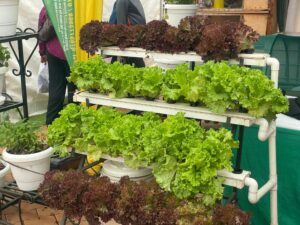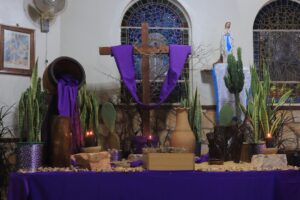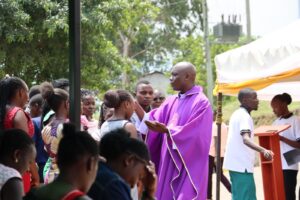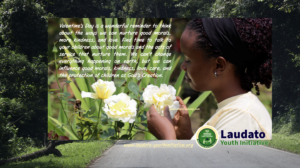By Laudato Voices | September 27, 2025.
Today, the Laudato Youth Initiative proudly joins the global community in celebrating World Tourism Day 2025, under the theme: “Tourism and Sustainable Transformation.” This year’s theme calls for a renewed understanding of tourism, not as a passive act of consumption, but as a powerful driver of sustainability, education, and ecological justice.
A Journey into Creation: Pilgrimage to Karangura Hills
As part of our celebrations, the Laudato Si’ Club of Nyakasura School embarked on a nature walk and spiritual pilgrimage to the breathtaking Karangura Hills, located in the western region of Uganda. This day-long excursion was not just a school trip, but a deliberate act of ecological reflection an opportunity for young people to connect deeply with creation and witness firsthand the beauty, fragility, and interconnectedness of Uganda’s natural heritage.

As they trekked through the scenic hills, the students paused to observe how human activities such as deforestation, agriculture encroachment, and plastic waste have impacted the ecosystem. Through this lived experience, they began to understand the profound message of Laudato Si’: “everything is connected.”
Uganda’s Ecological Richness and the Role of Tourism
Uganda is one of the most biodiversity-rich countries in the world, hosting approximately:
• 19,000 species of flora and fauna,
• 1,066 bird species,
• Over 345 species of mammals,
• And 450 fish species, many of which are endemic to the region.
From the misty mountains of the Rwenzoris to the savannas of Queen Elizabeth National Park, Uganda’s diverse ecosystems serve as sanctuaries for life and offer vast opportunities for eco-tourism. Sustainable tourism in Uganda contributes significantly to the achievement of Sustainable Development Goals (SDGs), particularly:
• SDG 12: Responsible Consumption and Production,
• SDG 13: Climate Action,
• SDG 14 and 15: Life Below Water and Life on Land, and
• SDG 8: Decent Work and Economic Growth.
According to the Uganda Tourism Board, tourism is the second-highest foreign exchange earner after remittances and plays a central role in rural development and conservation financing.
The Interdependence of Life: Reflections from Queen Elizabeth National Park
Earlier this year, our leadership team conducted an educational visit to Queen Elizabeth National Park, one of Uganda’s flagship conservation areas. There, they witnessed the symbiotic relationships between species such as the mutual interactions between birds and large mammals like elephants, or how native plant species provide essential habitats for countless organisms.

The sight of elephants majestic, intelligent, and deeply social left a lasting impression. Their presence in the park underscores the importance of protecting migratory corridors, freshwater sources, and forested landscapes. These are not just wildlife issues; they are planetary justice issues.
From Tourism to Transformation: A Call to Action
Tourism becomes truly sustainable when it is educational, inclusive of the young people, and transformative. It must challenge participants to become not just sightseers, but advocates and caretakers of the ecosystems they enjoy. Through initiatives like our Laudato Si’ Clubs, we are fostering a new generation of eco-conscious leaders who view tourism as a tool for environmental stewardship, community empowerment, and spiritual renewal.
As Pope Francis reminds us in Laudato Si’, “The entire material universe speaks of God’s love, his boundless affection for us. Soil, water, mountains: everything is, as it were, a caress of God.” (LS 84). As we commemorate World Tourism Day 2025, let us remember that our interaction with nature must always lead to conversion a change in how we live, consume, and advocate for a just and sustainable future. Whether walking through Karangura Hills, observing wildlife in Queen Elizabeth, or simply learning about biodiversity in our backyards, each experience can inspire us to act boldly for the planet.













